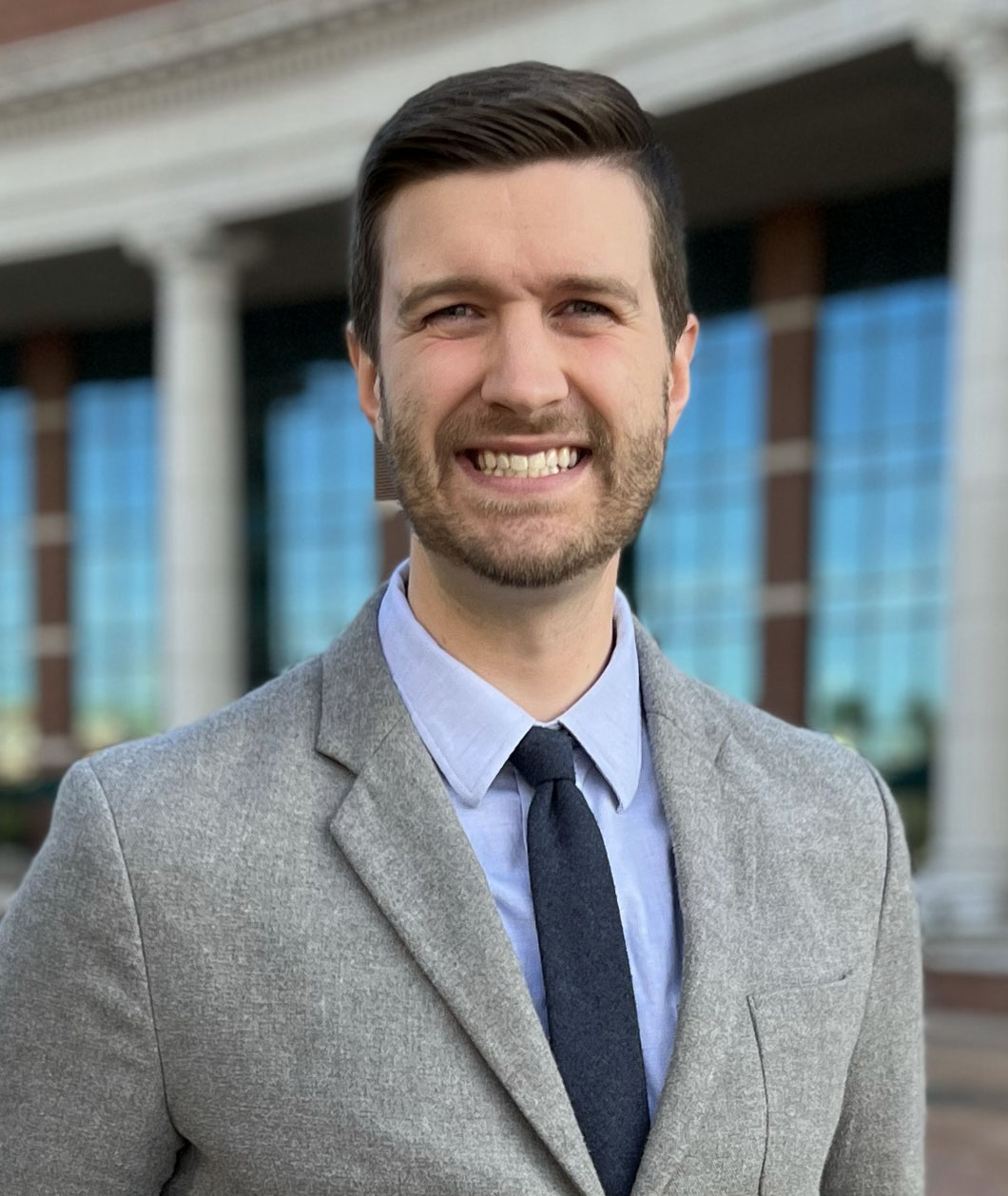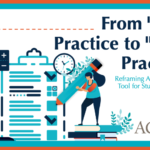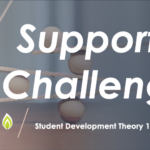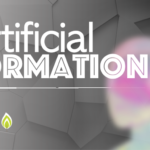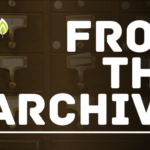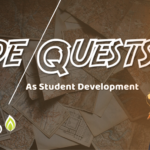I don’t know about you, but this last year was particularly tiring. In many ways it was also a great year. Lots of wonderful things occurred and were accomplished. But everything just felt like it took a little extra effort. Why? As the academic year came to a close I took a little time to reflect.
A Snapshot of 2022 and 2023
In January of 2022 many COVID restrictions were still in place. Things were returning to in-person, but public transportation and many event spaces still largely required masks, COVID tests, and/or proof of vaccination. As circumstances improved throughout the spring, most restrictions were lifted though, and we regained the ability to see each other face-to-face. Major conferences started to be hosted without required masks, and on-campus we also regained the ability to hold campus programs without having to make significant COVID accommodations. After two plus years of restraint and restriction, we were finally able to return to full scale operations and host in full our large events and campus traditions. This all felt like major progress towards “normalcy.”
With all of this progress, going into summer of 2022, I had the expectation that it would be like a pre-COVID summer and the pace would significantly slow down. By summer’s end I didn’t feel as rested as I had expected though. The start of fall came like a wave like it always does, but from there on out the pace felt like it just kept going. Objectively the semester ebbed and flowed like it usually does, with its peaks (Homecoming) and slower times (Thanksgiving). Subjectively though, I felt like I had been running since the summer with no chance to catch my breath.
After a nice Christmas break I entered this past spring (2023) ready for normalcy, but was disappointed yet again. As anyone following the student affairs job-market will know—it was still not normal. With high rates of staff turnover, I have seen countless departments trying to balance ongoing and increasing student need which was matched only by the demands of never-ending (and endlessly demanding) hiring processes.
So, What Happened?
So, what happened? Why wasn’t “normal” more normal? With the opportunity (albeit limited) I had to reflect, I came to a few thoughts and reflections.
COVID Fatigue
The first thing I realized was that even though 2022 was the most “normal” year since 2019, I didn’t enter the year with a surplus or even a normal amount of energy. COVID took a lot from us all. Even aside from the things COVID took from us, it just took a lot of mental capacity to accommodate the shattering of the normal social order and to keep up with the daily ways we had to flexible and adapt to emerging realities. All of that takes a mental toll and I realized that I entered the 2022-23 academic year with an energy and capacity deficit (one I am still rebuilding).
The Loss of Institutional Muscle Memory
The second thing I realized was that although we were able to do “normal” and “routine” things (like uninhibited in-person programs) over the course of the last one and half academic years, the routines of the pre-COVID past had been disrupted, even to the point of being broken. The things that once were easy and even automatic (like reserving physical spaces or contracting familiar vendors) were no longer routine. I was able to blow the dust off and remind myself of how some tasks had once been done. Other tasks though had been drastically altered by COVID and required the forging of new paths. For instance, some familiar vendors closed during COVID and even for those who were still present, prices had changed, arrangements had to be renegotiated, and/or familiar staff had turned over. For myriad reasons, things that once felt like second nature, had to be relearned or re-worked completely.
The Loss of Student Leader Memory
Even more than staff muscle memory though, I realized that students had arguably been even more disrupted. If you are like us, you rely heavily on student leaders. Student leaders help plan events, staff them, invest in fellow students, and so much more. They are indispensable (and I wouldn’t have it any other way). Sadly though, these “normal” events that we staff are “going back” to, many students are basically experiencing them in earnest for the first time. In ’22-’23 our (traditionally aged) seniors were first-year students when the pandemic hit. Their first spring semester was not punctuated by Baylor’s beloved annual Diadeloso (Day of the Bear) celebration, but instead by going home for spring break and not returning to campus until the fall semester (we finished spring of ’20 fully virtual). So, as our senior student leaders planned Diadeloso this spring, they did not have the same level of past experience to build upon. I believe this lack of “muscle memory” on the part of student leaders also adds to the extra effort that it felt like everything took this last year.
So Where Do We Go From Here?
Ok, so maybe you also feel tired after the ’22-23 academic year and that “normal” doesn’t feel as normal as you thought it would. What do we do now going into the coming academic year (’23-24)? I wish I had a profound insight or silver bullet to offer, but the belief I’ve come to is that the best “cure” is likely time paired with healthy expectations.
While I am still very much on the journey to rebuilding my energy and stamina, I think the first important step has been acknowledging that I am at a deficit and that I will need time to rebuild. Similarly, I think my institution and student leaders collectively will need time to rebuild back to stable rhythms. Consciously acknowledging the need to rebuild has provided an opportunity for self-reflection and consideration of what I wish to rebuild.
Second, I realized that I need to give myself intentional time and space to rest and rebuild. I shouldn’t expect things to be the way they were or to feel as easy as they used to. It’s not that things have objectively gotten harder, but I need to recognize that things I was once very practiced at, I am a little out of practice, and that is ok. Good things take time and effort, and I will get back there, but I need to be patient.
Third, I think it is important to invest in new habits. I believe that part of the reason certain things used to feel easier was because they were habits. As I rebuild though, I want to be intentional about the habits I form. While building new habits takes work, it is also an opportunity to be thoughtful about the “new normal” I want to build. I haven’t yet decided upon what these new habits will be, but I want to take the opportunity, while I have it, to set myself up for success.
Lastly, building upon the last point, and arguably most important, I think it is important to ask: “Where do I see God in where I have been?” and “Where do I need to invite God into where I am going?” For me although the last few years were tough, when I pause to reflect, I definitely can see God’s mercies for me in a season of challenge. There are several examples I could give, but one poignant one relating to work is the opportunity to rethink and rebuild my work habits. Was I honoring God, others, and myself with the way I went about doing my job? Answering that question could be a whole other Ideas piece, but I think the opportunity to rethink habits leads to the second question. In this upcoming season, where do I need to intentionally invite God into my work, particularly as I seek to build new patterns of work?
We serve a God that meets us in our weariness, creates beauty out of ashes, and rebuilds and renews that which has been broken (Isaiah 61). As we look ahead to the coming academic year, let’s invite Him to shape us to be vessels of His good work. I believe we continue to inhabit a season of regrowth and I hope you’ll join me (and hold me accountable) to be intentional about how we enter into this new season.
Reflection Questions:
- How do you feel entering 2023-24?
- What norms and habits in your life/work were disrupted in the last few years?
- Where did God meet you in your challenges in the last few years?
- If you were to pause and reflect upon what you desire a “new normal” to look like, what would you want that to be characterized by?
- What would it look like for you to invite God into this season of regrowth?


